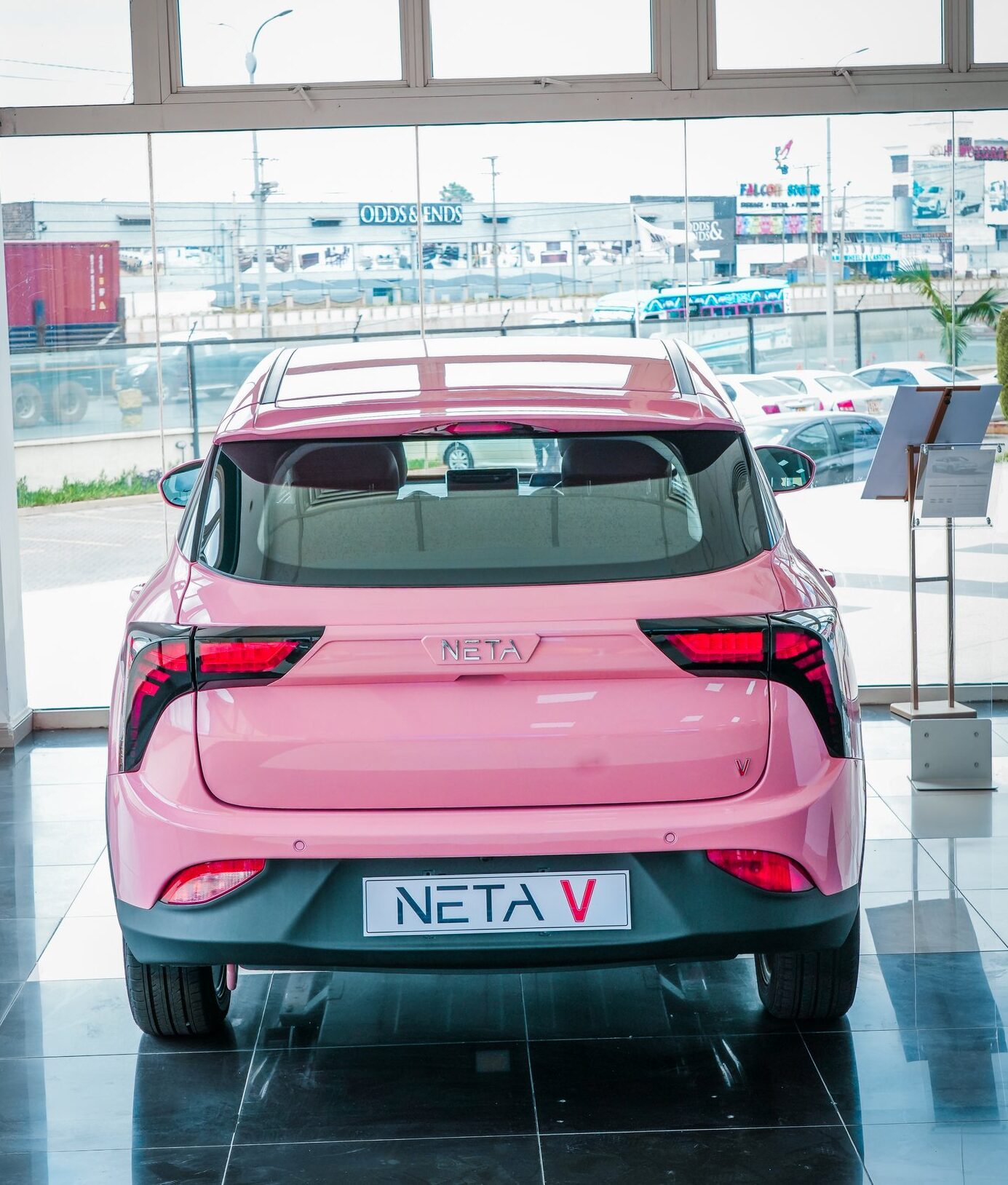Sign up for daily news updates from CleanTechnica on email. Or follow us on Google News!
Our friends at WysokieNapiecie.pl visited China a few weeks ago to get more information on the EU tariffs on Chinese EVs, and they’ve provided the following content for CleanTechnica. It includes some information on the tariffs which you’ve probably already seem, but it also includes some information and context that I haven’t seen elsewhere.
And just to set this stage, this is what the the European Commission wrote last week when the tariffs commenced:
“Today, nine months after the initiation of an ex officio anti-subsidy investigation, the European Commission has imposed provisional countervailing duties on imports of battery electric vehicles (BEVs) from China. Based on the investigation, the Commission has concluded that the BEV value chain in China benefits from unfair subsidisation, which is causing a threat of economic injury to EU BEV producers. The investigation has also examined the likely consequences and impact of these measures on importers, users and consumers of BEVs in the EU. […]
The individual duties applying to the three sampled Chinese producers are:
- BYD: 17.4%;
- Geely: 19.9%;
- SAIC: 37.6%.
Other BEV producers in China, which cooperated in the investigation but were not sampled, are subject to the 20.8% weighted average duty. The duty for other non-cooperating companies is 37.6%.
Also, a full report on the investigation can be found here.
Read along for more of a rundown on the tariffs, what they could mean, and broader industry context from Bartłomiej Derski of WysokieNapiecie.pl.
By Bartłomiej Derski
Tesla Requested Lower Tariffs
The Commission’s press services note that “based on a justified request, one BEV vehicle manufacturer in China — Tesla — may receive an individually calculated tariff at the final stage.” Other companies may also seek such special treatment. At their request, Brussels will check how much support they have received or still receive in China.
Germany, Sweden, and Hungary Oppose
Theoretically, the increased tariffs may not come into force at all because the Chinese government still has time to negotiate with Brussels. However, the chances of this happening in the coming weeks are slim. The increased tariffs to be charged from July will be a temporary measure for now. The tariffs must be officially approved by a vote of EU member states.
Not all member states agree with the European Commission. Germany, which exports a large number of combustion cars to China, is opposed. Sweden, home to Volvo Cars, currently owned by China’s Geely but manufacturing cars in both countries, also opposes the tariffs. Hungary, the closest ally of China (and Russia) in the European Union, also opposes them. However, this is more of a political gesture from Orban’s government, as Hungary will benefit from EU tariffs. Chinese manufacturers are already building battery (CATL) and car (BYD) factories there. With the introduction of the tariffs, more such investments could appear in Hungary. However, to block the tariffs, 11 EU countries would be needed. It is unlikely that so many will be gathered.
Not All Electric Vehicles from China Will Receive Higher Tariffs
Electric buses will be excluded from the higher tariffs, even though Chinese manufacturers are doing well in the European market. “The investigation concerns new electric vehicles intended primarily for the transport of 9 or fewer people,” explained Olof Gill, the European Commission’s spokesperson for trade, in an interview with WysokieNapiecie.pl. “Light commercial vehicles (LDVs, HDVs), motorcycles, hybrid cars, and plug-in hybrids are excluded from the proceedings,” added Gill. Additional tariffs will also not apply to Chinese combustion cars, which are also selling better in Europe.
How Does China Subsidize Car Manufacturers?
The EU investigation has revealed that Chinese manufacturers receive support from national or local Chinese authorities in the form of, for example, low-interest loans, government loan guarantees, preferential export insurance, tax reductions, and exemptions. More can be read here.
Europe Sells More Cars in China Than the Chinese in Europe
Despite this support, Chinese brands’ share in the sales of electric cars in the European Union was only 7%. The sale of 100,000 Chinese electric cars in a market currently counting 1.5 million cars annually is not very impressive. Slightly more electric cars produced in China were sold in the EU by European and American manufacturers. For example, the cheapest electric car on our market (Dacia Spring) and the popular Tesla Model 3 come from China.
Meanwhile, as Bloomberg calculated, German manufacturers alone sold 4.6 million cars in China in 2022. Those are mainly combustion vehicles, with a significant portion being expensive models.
Brussels is, however, alarmed by the pace of changes: the share of Chinese brands in the European market is rapidly increasing, and the share of European brands in China, although much larger, is decreasing.
Why Are Chinese Manufacturers Cheaper?
The European Commission’s narrative that Chinese cars are cheaper because Chinese manufacturers can count on tax exemptions is only part of the story. An obvious fact is also labor costs — less than half the labor costs as you find in factories in Poland, Slovakia, and Hungary. However, three other factors are also crucial.
First, electronics production has been concentrated in China for decades. This is where the smartphones and laptops we use are made. Therefore, the batteries for them are also produced there, and now the batteries that are installed in electric cars are mostly made there as well. Chinese manufacturers today have the largest production scale, know-how, and supply chains in the battery sector. According to the International Energy Agency, the average price of car batteries in Europe is 20% higher than in China. However, the trend for Europe is very favorable, as battery production is rapidly scaling up here, and competition among suppliers is growing. In 2020, car batteries in Europe were 70% more expensive than in China.
The Price War from China Moves to Europe
Second, there is currently a fierce price war in China. There are nearly 300 electric car brands in China. Most of them we have never heard of in Europe. Many of them cannot even be named by Chinese industry insiders. “200 meters from here, you have a showroom of a new brand making super sporty but very cheap electric cars. I don’t remember the name, but you have to see it,” one of the sellers of another Chinese brand (Li Auto) in Shenzhen encouraged us a few weeks ago. We went to explore. We could buy a car resembling a BMW i8 in appearance and comparable performance for the equivalent of $14,000–$19,000. “We target young Chinese for whom this may be their first sports car,” the seller explained.
European manufacturers are also participating in this war. When we entered a BMW showroom in one of the Chinese cities, the seller greeted us with a broad smile and presented us with an absolute novelty — the BMW i3 in an extended limousine body — and informed us that the 300,000 yuan ($41,000) we see on the price list is only the official rate. “At the moment, we sell this car for 220,000 yuan [$30,000] because we have a price war in the market,” he explained.
The effects of this war are moving to Europe. The Chinese market is starting to get saturated because the Chinese already have their dream cars, and almost all are new, bought in the last decade. In big cities, the number of cars is already limited by limiting registration possibilities and promoting public transport. As a result, domestic demand is falling, so Chinese manufacturers are looking for foreign markets to maintain production scale. To enter these markets, they must offer lower prices.
Huge Factories Are Half-Empty
Third, due to the rapid growth in sales, Chinese manufacturers have massively expanded factories. Today, many of them are far from fully utilizing their production lines. To minimize losses from inflated fixed costs, they can offer cars at prices slightly exceeding variable production costs.
How Much Cheaper Are Electric Cars from China?
According to estimates from several centers, including Bloomberg, Chinese cars are sold on average 20% cheaper in Europe than European cars. In reality, the cost difference is more significant. Part of this is currently being consumed by importers of Chinese brands, who would not start offering Chinese brands without high markups. In China, according to WysokieNapiecie.pl estimates, the differences exceed 50%, both in the offers of Chinese and European and American manufacturers.
Will Europe Also Lose in a Trade War?
The European Commission’s decision to increase tariffs may be perceived by Beijing as an escalation of the economic war between the West and China. If Beijing responds to these tariffs with its own tariffs on European combustion cars, German manufacturers may suffer the most. However, this will not be the only reason why their position in China is much weaker than a decade ago.
Will China Turn Away from Worshipped European Brands?
Until recently, the parking lots of the largest cities in China looked like they were transported straight from Germany. They were dominated by Volkswagens, Mercedes, and BMWs. There are still many of them, but today every fifth new car in China is 100% electric, while in the largest (that is, the wealthiest) cities, this share is approaching half, and in Hong Kong, it exceeded 50% in 2023.
In this powertrain category, European manufacturers have little to offer the Chinese market. Volkswagen and BMW lead because they were the first to start electrifying their car portfolios, but they are far behind the American Tesla. This brand’s cars are extremely popular in China.
“If you have a lot of money, you will probably still buy a Mercedes or BMW because it is still a quality and status symbol in our country, but the sentiment for Chinese products is improving, and they are cheaper, so the share of our brands is growing,” says an employee of one of the large Chinese automotive companies in an interview with WysokieNapiecie.pl. “This is also one of the main reasons why all our manufacturers want to sell cars in Europe. If you are present in that market, it is like passing a quality test, and you can boast about it in China,” he explains.
Tariffs Will Give Europe Some Breath, But Europe Lives from Exports
The Chinese will strive to enter the expensive European market one way or another. If not through exports to the EU, then by producing in European factories. Besides the CATL and BYD factories in Hungary, China’s Leapmotor is setting up an assembly plant in Tychy, Poland. Geely, with its Volvo plants, is already well established on our continent, and several other Chinese manufacturers are considering entering the Polish market directly.
Import tariffs will not save Europe. What might save us is what makes Europe a power — the development of modern technologies that the world seeks, faster than the competition develops it. We lost the photovoltaic panel production war because we did not scale demand as quickly as China did and did not protect our market from prices lower than production costs when a similar price war situation also occurred here.
Europe also lagged in the transformation towards electromobility and lithium-ion battery production. However, a few years of slowing Chinese expansion using the tariffs may be the time that European manufacturers need to scale up car and battery production, provided the internal European market allows them to grow. Ultimately, European car manufacturers live from exports. They will not avoid competition with Chinese cars produced in Europe or on the Chinese market. They simply have to make them better if they cannot make them cheaper. So far, only some have truly risen to the challenge. It’s time for the rest, who have decided to hide behind Brussels for now, to follow suit. It’s also time for Brussels to support the production of batteries and electric cars in Europe more effectively than it has done so far.
Have a tip for CleanTechnica? Want to advertise? Want to suggest a guest for our CleanTech Talk podcast? Contact us here.
Latest CleanTechnica.TV Videos
CleanTechnica uses affiliate links. See our policy here.
CleanTechnica’s Comment Policy





